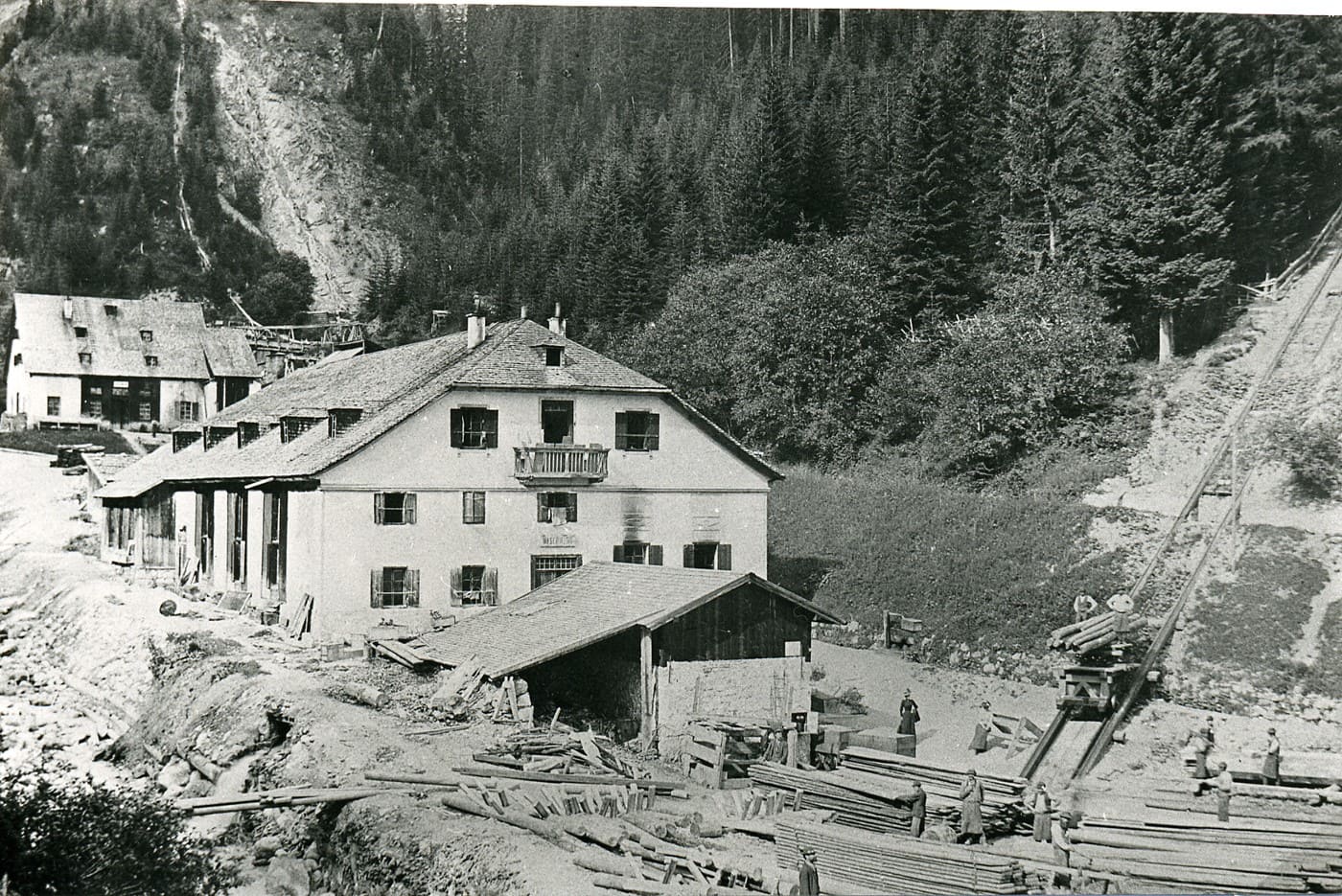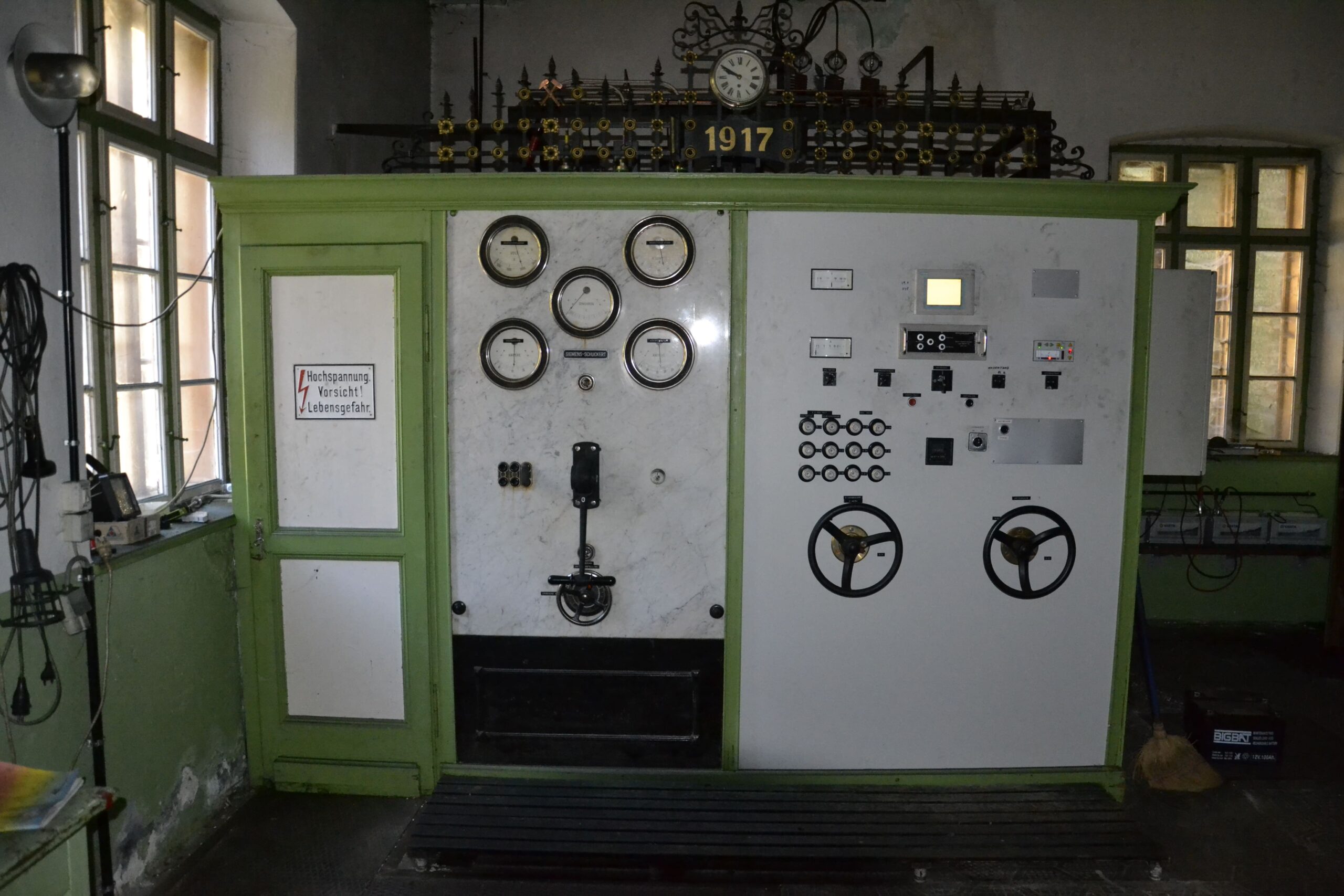Washery 4 - 1st Power
In 1866, at the confluence of the
Schrambach and Rossbach rivers,
Washery Number 4 was built. In 1908, it
was connected to the Rupertistollen via
an inclined elevator and to the town of
Mühlbach via a connecting railway and an
additional inclined elevator.
Around 1901,
the high copper prices on the world market
and rich ore bodies in the Annastollen
made it possible to build the first power
plant in Mühlbach am Hochkönig, the
'Mitterberg-Zentrale," here.
Before the end of World War I (1917), a
powerful Siemens/Schuckert turbine
was installed in the power plant, which
is still in operation today. Since 1937,
the power plant has been owned by the
Radacher family. To this day, it supplies
the Arthurhaus, the Berghof, and the
Hochkeilhaus with electricity generated
from hydropower in the Riedingtal.
Kids
"Shift in the pit"
Have you ever heard the saying "shift in the pit"? It comes from the language of miners. It means that the work shift, i.e. the duration of the work, is over and that the men are allowed to finish work for the day. This means that the shift in the shaft, i.e. the gallery or tunnel, is over. The saying is still used today and is said when something is over.
"Shift in the pit"
The saying "shift in the pit" comes from the miners' language and means that the miners' working time in the pit, i.e. in the gallery or tunnel, is over and they are allowed to go home. Today we say it when something is finished or over, such as lessons or a game. So it's a way of saying: "That's it, we're done!
This idiom thus vividly demonstrates how expressions from special technical languages (such as mining) can be incorporated into everyday language and remain in use even if the original context is no longer so present.
"Shift in the pit"
The saying "shift in the shaft" originally comes from the miners' language and meant that the miners' working hours in the shaft (i.e. in a gallery or tunnel) were over and they could go home. Today it is used in everyday life to express that something is finished or over, such as a school lesson or a football match. The idiom shows how expressions from specialised professional fields, such as mining, are adopted into everyday language, even if the original context is now barely known.


